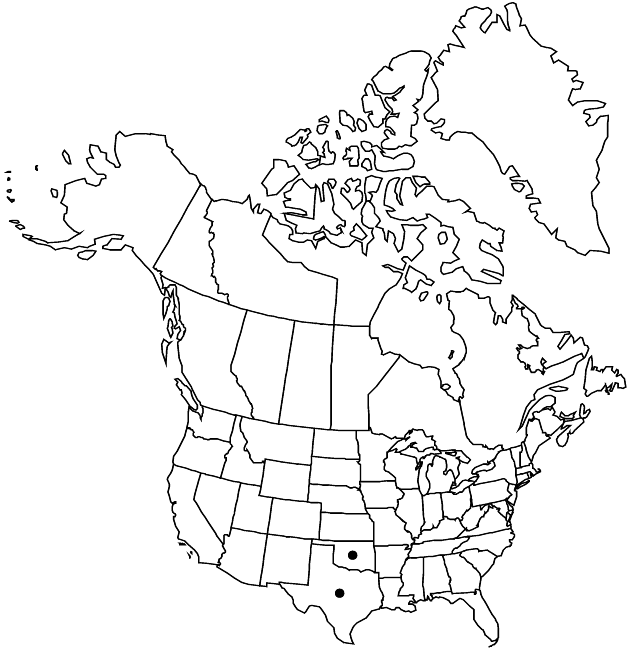Liatris aestivalis
Sida 19: 768, figs. 1, 2. 2001.
Plants 20–65 cm. Corms globose or subglobose. Stems glabrous. Leaves: basal and proximal cauline 1-nerved, linear to linear-lanceolate, 70–150 × 1–2.5 mm, abruptly or gradually reduced on distal 1/2 of stems, essentially glabrous (margins sometimes sparsely ciliate). Heads (closely spaced, stems obscured) in dense, (cylindric) spiciform arrays. Peduncles 0. Involucres cylindro-turbinate, 9–12 × 3.5–5 mm. Phyllaries in 2–3 series, (often dark purple in anthesis) oblong-lanceolate to lanceolate-triangular, weakly unequal, essentially glabrous, margins without hyaline borders, sometimes sparsely ciliate, apices acute to acute-attenuate (sometimes with narrow tips). Florets 3–4(–5); corolla tubes glabrate inside. Cypselae 4.5–6 mm; pappi: lengths ± equaling corollas, bristles plumose.
Phenology: Flowering mid Jul–Aug(–Sep).
Habitat: Shallow soils over limestone outcrops, slopes, bases of slopes, usually with yucca
Elevation: 100–400 m
Discussion
Selected References
None.
